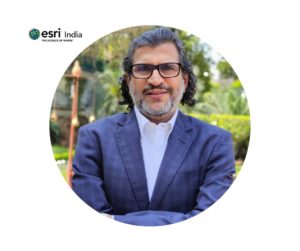Arvind Bali, CEO, Telecom Sector Skill Council

“A skilled workforce plays a critical role in a country’s economy and nation-building. This year’s theme around transformative future and recognizing the crucial role of educators in equipping young people with the skills is completely apt in a time when the world is going through a significant transition with disruptive technologies challenging traditional work. Skilling and up-skilling never been more crucial, TSSC is taking aggressive steps to train skilled workforce for telecom industry and 5G roll out. We are constantly working towards designing industry-driven skill development programs focused on specialized training in these technologies. As India is emerging as the fastest-growing economy, a youth with the right skills would be the key to ensure this growth momentum in future as well.”
Vaishnavi Shukla, HR Head, Comviva

“India is one of the fastest-growing economies in the world with the largest youth population ready to be skilled in various domains, especially new age technologies. As an organization our impetus through the ‘Comviva Campus Connect’ program is at building academia-industry partnerships to work towards a common purpose of transforming the education system. In this direction we have partnered with top universities in Bhubaneswar to drive core technical competencies to develop market appropriate talent. With our various initiatives we are constantly working towards improving the quality of the talent pool available in India and make them better ready for industry demands. We strongly believe that investing in the next generation is investing in a prosperous tomorrow.”
Neha Bagaria, Founder & CEO, HerKey (formerly JobsForHer)

“To ensure a digital-centric future, it is imperative for India to recognize the vital importance of fostering a holistic skill development ecosystem encompassing not only technical and hard skills but also essential life skills. This holds particular significance for our young population, including women graduates entering the workforce, to mitigate the concerning trend of high dropout rates. We must prioritize equipping the youth with a comprehensive set of life skills that are equally valued alongside technical competencies in the era of automation and Industry 5.0. These essential life skills prepare individuals to effectively adapt to evolving environments. As advocates for the well-being of society, we firmly believe that the strength of a community depends on the opportunities it provides to all individuals. Therefore, as leaders, it becomes our responsibility to foster collaboration and establish a robust skilling ecosystem that caters to the multifaceted needs of today’s youth.”
Harshvendra Soin, Global Chief People Officer & Head – Marketing, Tech Mahindra

“Today’s youth are not just the leaders of tomorrow; they are also the architects of innovation, progress, and change. By investing in their skills, we invest in the future of India, and this World Youth Skills Day is an excellent opportunity to recalibrate our efforts towards this initiative. In the current scenario, there is a need for the workforce to be future-ready and thus, the need to be a part of the reskilling revolution is imperative. The theme for this year is around skilling teachers, trainers and youth for a transformative future, and the sentiment echoes deeply within Tech Mahindra as we strive to RISE for a more equal and future-ready world, while creating value in everything we do.
At Tech Mahindra, we focus on youth skilling via major initiatives such as the Tech Mahindra Foundation Smart Centre, which offers free training and placement assistance to unemployed youth, in addition to creating reskilling and upskilling opportunities. As we celebrate World Youth Skills Day, let us take this opportunity to recognize the importance of skilling and supporting initiatives that bridge the gap between education and employability and commit to playing our part in empowering the skilled youth of tomorrow.”
Agendra Kumar, Managing Director, Esri India

“With the increasing use of geospatial technologies, like GIS in various sectors of the economy, career opportunities in GIS are growing. The Indian Geospatial Industry is projected to drive the generation of over 10 lakh jobs by 2025. We are moving fast toward a location-rich personalized future, and thus the need for inculcating geospatial thinking and skills in the youth is crucial for solving the complex problems of tomorrow. It is also necessary to reskill the existing workforce. Through our partnerships with academia, we are continuously equipping science, engineering, and technology students; youth, and mid-career professionals with geospatial knowledge and skills. These initiatives prepare them for careers that nurture innovation, critical thinking, problem-solving, and a deeper understanding of our surroundings.”
Dr. Bharghava Rajaram, Professor, Mahindra University École Centrale School of Engineering

“Empowering teachers and youth through skill development is crucial, as one paves the way while the other seizes opportunities, for a promising future. Our current need is an inclusive and interactive approach, fostering effective pathways and enabling educators to embrace modern technologies like AI, robotics, cloud computing, AR/VR in the classroom. According to the WEF report, there is an urgent call for a ‘reskilling revolution,’ estimating that 44% of workers will require updated skills to ensure long-term employability. The National Education Policy (NEP) emphasizes courses such as IoT, AI, Industry 4.0, robotics and automation, which contribute to shaping well-rounded individuals and equipping them with valuable skill sets in today’s economy. Embracing this vision, Mahindra University has inculcated these aspects into its degree programs and is also introducing skill development and upskilling programs for both students and professionals, extending equal opportunities for all to secure highly sought-after jobs.”
Sqn Ldr Dimple Rawat (Retd), Director HR at Barco India

“It is rightly said that the true measure of a nation’s progress lies in the skill sets of its youth for, by empowering our young population with the right skills, we lay the foundation for a prosperous and self-sustaining India. Our talented youth forms the backbone of this great nation’s future-ready ambitions and we must reaffirm our commitment to skilling, upskilling, and reskilling them, if we are to offer them the wings necessary for fulfilling this dream. This World Youth Skills Day, I invite you all to join me as we commit to a ceaseless focus on initiatives that promote skill development, entrepreneurship, and innovation. By creating a conducive ecosystem that encourages collaboration, experimentation, and risk-taking, we can foster a generation of job creators and innovators, empowering them to become catalysts of change, thereby driving India towards a brighter and more inclusive future.”
Anku Jain, Managing Director, MediaTek India

“The youth is the backbone of any nation in its economic and overall development of society, and the need for regular skill development for the next generation has become paramount for the growth of a country. New-age disruptive technologies such as AI, IoT, ML, and cloud computing have become the core of everything we do, and this momentum demands new digital skill sets. According to the World Economic Forum’s Future of Jobs report, 50% of all employees will need reskilling by 2025, escalating the need to upskill and reskill the employees. As organizations are gradually becoming digitally savvy, upskilling employees is crucial to avoid any gap between the skillsets available and the organization’s needs.”
At MediaTek, we believe in investing in local Indian talent and scaling capabilities to drive innovation for India and global markets through dedicated technical training sessions, e-learning platforms, and regular opportunities for upskilling. The process instills loyalty as a virtue while giving employees the confidence and motivation to move forward and deliver their best, enabling them to capitalize on the various opportunities while being adaptive to transformations.”


